नवल टाइम्स न्यूज़: वन अनुसंधान संस्थान(एफआरआई) देहरादून ने ‘वन आनुवंशिक संसाधन प्रलेखन, विशेषता और संरक्षण’ पर उत्तराखंड, उत्तर प्रदेश, हरियाणा और पंजाब के राज्य वन विभाग के लिए एक अनुभव साझा कार्यशाला का आयोजन किया।
कार्यशाला में उत्तराखंड, हरियाणा, पंजाब और उत्तर प्रदेश के राज्य वन विभागों का प्रतिनिधित्व करने वाले कुल 70 प्रतिनिधियों / अधिकारियों और एफआरआई के वैज्ञानिकों ने भाग लिया। एफआरआई ने पर्यावरण वन और जलवायु परिवर्तन मंत्रालय के राष्ट्रीय-कैम्पा प्राधिकरण द्वारा प्रायोजित वन आनुवंशिक संसाधन विशेषता और उत्तराखंड के संरक्षण पर एक पायलट परियोजना को क्रियान्वित किया।
परियोजना के मुख्य परिणामों पर उत्तराखंड वन विभाग के अधिकारियों के साथ चर्चा की गई। कार्यशाला में एफआरआई के वैज्ञानिकों ने पहचान, डिजिटल प्लेटफॉर्म के रूप में दस्तावेजीकरण, पर्यावरण-वितरण मानचित्रण, आनुवंशिक विविधता और जैव-रासायनिक लक्षण वर्णन, रोग सर्वेक्षण, प्रसार तकनीकों के विकास के माध्यम से उत्तराखंड के वन आनुवंशिक संसाधनों के आकलन पर जानकारी साझा की।
कार्यशाला आयोजित करने का मुख्य उद्देश्य वानिकी प्रजातियों पर अल्पकालिक और दीर्घकालिक संरक्षण योजनाओं को विकसित करने के लिए एफजीआर के ज्ञान आधार को साझा करना था। हिमालयी पारिस्थितिकी तंत्र की मूल श्रेणी में आनुवंशिक रूप से विभेदित जर्मप्लाज्म विकसित करने के लिए नई तकनीकों पर चर्चा की गई और उन अंतरालों का भी आकलन किया गया जिन्हें प्रौद्योगिकी के विकास और हस्तांतरण के लिए पहचाना गया है। इस अवसर पर श्री चंद्र प्रकाश गोयल महानिदेशक वन और सरकार के विशेष सचिव,MoEFCC, श्री अरुण सिंह रावत महानिदेशक आईसीएफआरई, श्री सुभाष चंद्रा, मुख्य कार्यकारी अधिकारी, राष्ट्रीय प्राधिकरण-कैम्पा, पर्यावरण एवं वन मंत्रालय और डॉ. एच.एस. जिनवाल, राष्ट्रीय परियोजना समन्वयक-एफजीआर ने प्रतिनिधियों को संबोधित किया।
उपस्थित एफआरआई के वैज्ञानिक डॉ. एन.के. उप्रेती, जीसीआर एफआरआई, डॉ अजय ठाकुर, डॉ मनीषा थपलियाल, डॉ अनूप चंद्र, डॉ अमित पांडे, डॉ वी.के. वार्ष्णेय, डॉ. दिनेश कुमार, डॉ. रंजना, डॉ. रमाकांत, और डॉ. पी.एस. रावत मौजूद थे। प्रतिवेदक डॉ. एम.एस. भंडारी और श्री आर के मीणा सहित अन्य वैज्ञानिक, शोधार्थी और छात्र भी संगोष्ठी में उपस्थित थे।
Forest Research Institute Dehradun organised an experience sharing workshop for the state forest department of Uttarakhand, Uttar Pradesh, Haryana and Punjab on ‘Forest Genetic Resource Documentation, Characterization and Conservation’.
A total of 50 delegates/officers representing state forest departments of Uttarakhand, Haryana, Punjab and Uttar Pradesh and Scientists of FRI participated in the workshop. FRI executed a PILOT project on Forest Genetic Resource Characterization and Conservation of Uttarakhand sponsored by the National-CAMPA authority of Ministry of Environment Forests and Climate Change.
The salient outcomes of the project were discussed with officials of the Uttarakhand Forest Department. In the workshop, the Scientists of FRI shared information on the assessment of forest genetic resources of Uttarakhand through identification, documentation in the form of digital platform, eco-distribution mapping, genetic diversity and bio-chemical characterization, disease survey, development of propagation techniques and finally in situ and ex situ germplasm conservation approaches. The major aim for conducting the workshop was to share the knowledge base of FGRs for developing short term and long-term conservation plans on forestry species. The new technologies were discussed to develop genetically differentiated germplasm in native range of Himalayan ecosystem and also assessed the gaps that have been identified for the development and transfer of technology.
On this occasion, Sh. Chandra Prakash Goyal Director General of Forests and Special Secretary to Govt. of India, MoEF&CC, Shri Arun Singh Rawat Director General ICFRE, Sh. Subhash Chandra, Chief Executive Officer, National Authority –CAMPA, MoEF&CC and Dr. H.S. Ginwal, National Project Coordinator-FGR addressed the delegates. Scientists from FRI present wereDr. N.K. Upreti, GCR FRI, Dr. Ajay Thakur, Dr. Manisha Thapliyal, Dr. Anup Chandra, Dr. Amit Pandey, Dr. V.K. Varshney, Dr. Dinesh Kumar, Dr. Ranjana, Dr. Ramakant, and Dr. P.S. Rawat were present. Rapporteurs Dr. M.S. Bhandari and Shri R. K. Meena along with other scientists, research scholars and students were also present in the seminar.

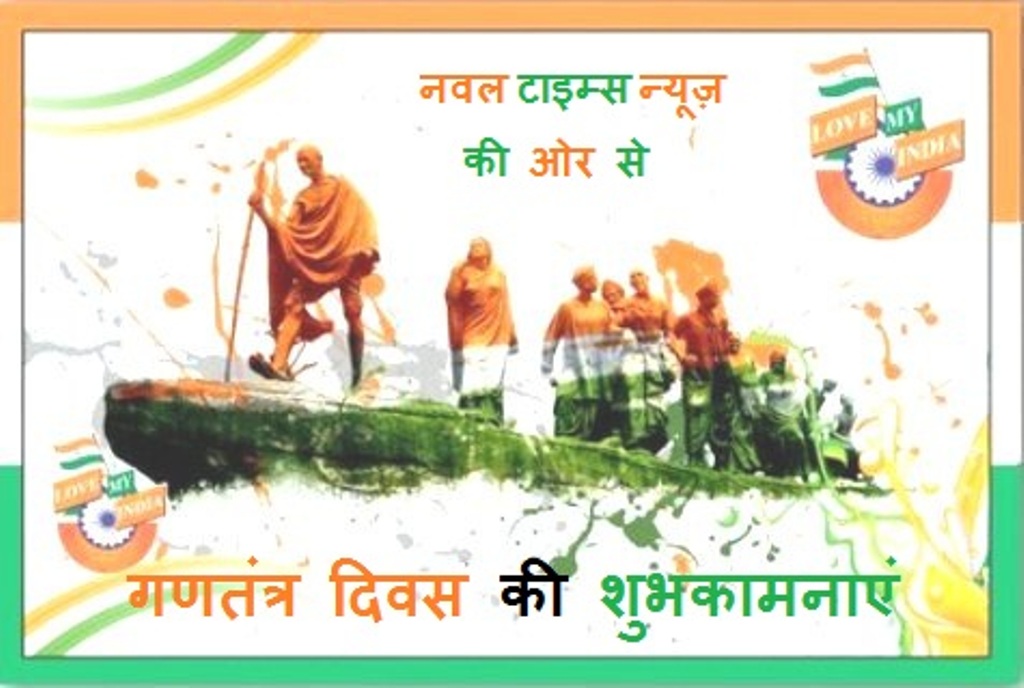
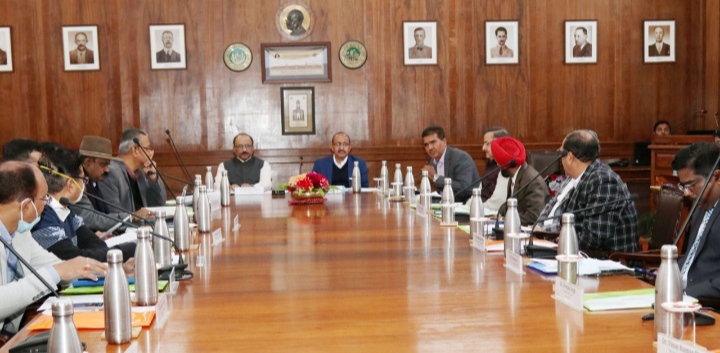
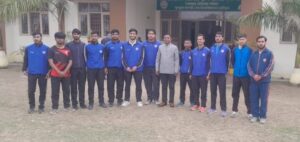
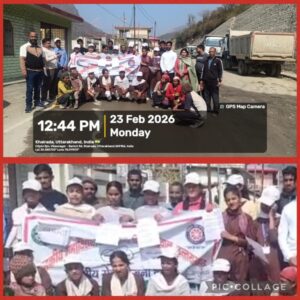
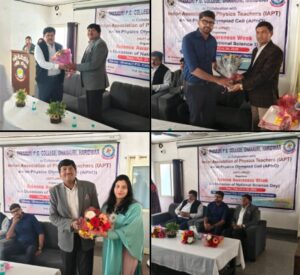
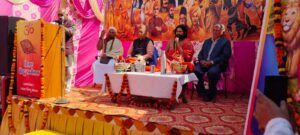
More Stories
संतुलित भोजन, एक सामान्य व्यक्ति तथा खिलाडी की दिनचर्या को स्फूर्ति प्रदान कर स्वस्थ्य शरीर का निर्माण करता है- डॉ0 शिवकुमार चौहान
राजकीय महाविद्यालय नैनबाग ने किया नशामुक्ति जागरूकता कार्यक्रम का आयोजन
हरिद्वार: धनौरी पी.जी. कॉलेज में विज्ञान जागरूकता सप्ताह का शुभारंभ